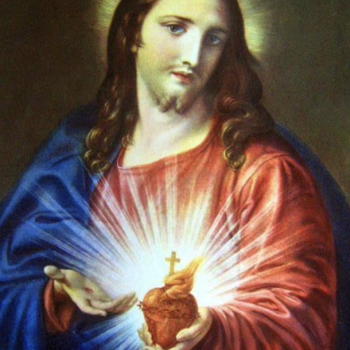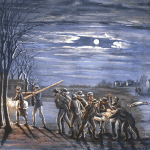Since this is my inaugural column here at Patheos, I thought I would reflect a bit on the meaning of history and why the study of the past can be a transformative experience in our lives. I hope that "Confessing History" will help readers to reflect more thoughtfully on the contemporary world in which we live. But I also hope that it will get readers excited about looking more deeply into the past. Such an encounter can go a long way toward relieving us of our inherent narcissism and helping us to see ourselves as something larger than the sum of our own self-interest.
It is our natural instinct to look for something relevant in the past. The past, for example, can inspire us. Christians have made good use of this benefit for studying history. Our lives are enriched by learning about the spiritual joys and triumphs of Christians who have gone before us. The biographies of St. Augustine, Martin Luther, John Calvin, Dietrich Bonhoeffer, Martin Luther King Jr., Mother Theresa, or Billy Graham inspire us because we believe that God has used them to advance His kingdom. Moreover, we tend to approach the past in search of familiarity. We want to find people in the past who are just like us. We relate more fully to the past when we encounter a person who endured the same kinds of trials that we do or who overcame the same kinds of obstacles.
Most human beings tend to be present-minded when it comes to confronting the past. We want to use the past to get our point across in the present. We want to engage in what historian Bernard Bailyn has called "indoctrination by historical example."
But the search for relevance is only one side of the study of the past. If we are really interested in engaging in an honest and thorough understanding of the past we may often encounter things that are unfamiliar or perhaps downright strange to our present-day sensibilities. There were some people in the past who burned witches. Others participated in human sacrifice. Most human beings lived rather pedestrian lives by today's standards. It is hard for us to grasp their lack of ambition or willingness to act in history to change the world.
It is the remoteness of the past that turns off many school children to its study. What if the past does not seem relevant? What if it does not inspire? How does knowledge of the medieval feudal system enrich our lives? What if we came to the conclusion that much of the 18th-century world of the American founding fathers was different than our own? This might mean that we proceed with caution when trying to evaluate every contemporary issue we face in American life today with the question: "What would the founders do?"
Yet, I would argue that it is the very strangeness of the past that has the best potential to change our lives. An encounter with the past in all its fullness can cultivate virtue in our lives. It teaches us empathy, humility, selflessness, and hospitality. And I think everyone would agree that these are virtues that our society desperately needs. Students of the past learn to listen to voices that differ from our own, a skill that goes a long way toward ridding ourselves of the selfish quest to make the past serve our needs.
Theologian Charles Mathewes, in a brilliant book entitled A Theology of Public Life, argues that Christians today are afflicted by the sin of escapism -- the desire to flee from God and each other. God wants us to turn toward Him, but he also wants us to turn toward each other. In the process of loving our neighbor, Mathewes argues, we grow as Christians.
What if we viewed the study of the past as a form of loving our neighbor? Even if the neighbor we encounter is dead, we can still enter into a conversation with the sources or materials that he or she left behind. If we take seriously the idea that all human beings are created in God's image, then we should also take seriously the idea that those who lived before us were also created in God's image. The very act of studying humanity -- past or present -- can be what Mathewes calls "an exploration into God, a mode of inquiring God."
An encounter with the past thus becomes an act of spiritual devotion. This kind of encounter, as Mathewes writes, "provides more than enough opportunities for humility, penance, recognition of one's sin and the sins of others, and a deepening appreciation of the terrible awe-fulness of God's providential governing of the world." Doing history is not unlike the kind of disciplines we employ in our spiritual lives -- disciplines that take the focus off of us and put it on God and others.
The past is certainly a useful guide for understanding the world today. And I have no doubt that most of my columns here at Patheos will attempt to bring some historical understanding to contemporary events. But let's not forget that the study of the past can do much more.
11/17/2010 5:00:00 AM





